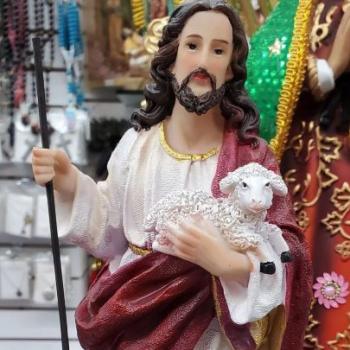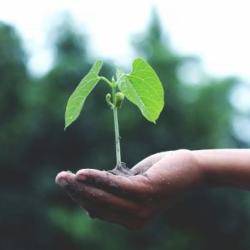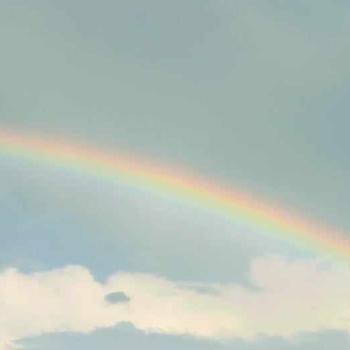The narrowing window of time in which to address the climate crisis can send even the most energetic environmental preacher into despair. How do we ‘feed the right wolf’ and preach good news that can lift us out of the ‘dark night of the green soul’?
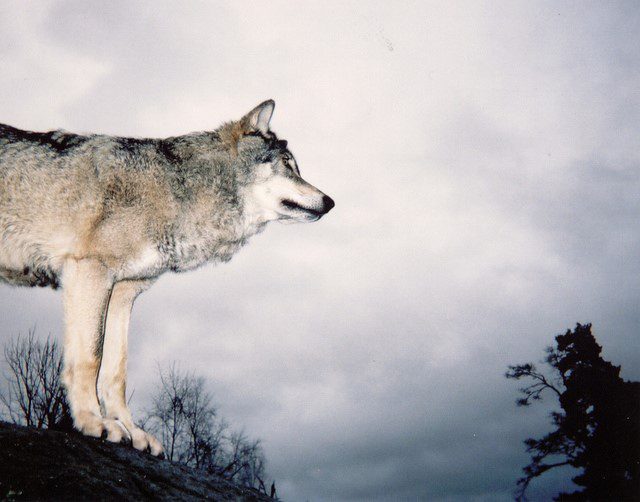
Proclaiming ‘good news’ in the midst of environmental bad news
In July 2017, I had the honor of being part of two round-table panel discussions hosted by Scott Hardin-Nieri, Director of the Creation Care Alliance of Western North Carolina, and Minister of Green Chalice of the Christian Church (Disciples of Christ). One was at a break-out session for the DOC-CC General Assembly and the other was part of the Wild Goose Festival. Scott encouraged the panelists to not just hammer the “bad news” of what is going on with climate change and environmental devastation, but to share stories of “good news.” What are ways in which we can inspire people’s faith and encourage them to act on behalf of God’s Creation in the midst of this challenging time?
In my preaching, I’m trying to use a framework I call ‘feeding the right wolf. In the movie Tomorrowland (Disney, 2015), the protagonist recounts a Native American story called the “Tale of Two Wolves.”
The Tale of Two Wolves

There are two wolves. One is evil, greedy, arrogant, lying and full of fear. The other is good, filled with love, hope, compassion and integrity. They are of equal strength and locked in a battle to the death.
The question is: which one will win?
The answer: the one we feed.
We need to feed the right wolf by engaging our thoughts, words and deeds in a way that nurtures life and hope. But in my years working with environmental activists, I’ve noticed increasing levels of depression because we are inadvertently feeding the wrong wolf. The more we learn about the ecological damage being done to this planet, the mounting effects of climate change, and the utter intransigence of both climate deniers and the apathetic public, the more we struggle with hopelessness. This, in turn, leads to disempowering ourselves, and the wolf of despair threatens to devour us.
Read David Wallace-Wells’ ‘The Uninhabitable Earth’ and see if you don’t feel like succumbing to crushing despondency. Given the unprecedented challenges we face regarding the climate crisis and other ecological threats to the well-being of our planet, it’s perfectly understandable to feel driven to pessimism. Many of us are struggling with what I call ‘the dark night of the green soul.’
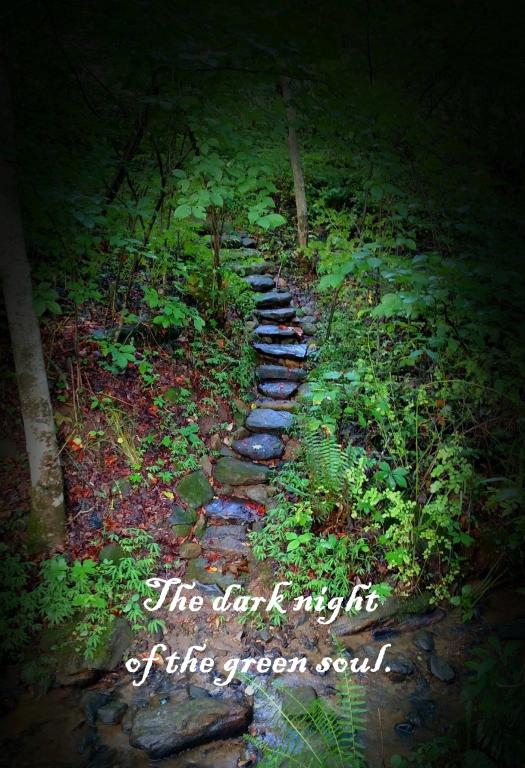
Part of the church’s role during this time is to preach the ‘eco-resurrection’ even in the midst of the ‘eco-crucifixion.’
This is something I wrote about in my book Creation-Crisis Preaching. I’ll admit, though, that this is the hardest challenge for me these days. I’m tempted to give up, throw in the towel.
But too many biblical and historical stories of perseverance in the face of adversity won’t let me. My faith keeps dragging me back from the edge of the cliff to keep preaching the gospel. Because, frankly, the alternatives are untenable. Plus, I would rather be a fool for the gospel than a coward for the crypt.
I’ll share just three vignettes (Earth, Wind, and Water) to illustrate how this ‘feed the right wolf’ framework can work. These are drawn from actual experiences in congregations I have served. One was a primarily caucasian middle/upper-class suburban congregation. The second was a primarily African-American/African-native urban congregation. The third was a primarily caucasian congregation in a rural/small town area.
Earth: Protecting an Eden-Oasis amidst Suburban Sprawl
In the suburban congregation, I preached a sermon about the necessity of preserving what few natural lands we have left. I explained that just as God created Eden and called it good, establishing the Genesis 2:15 principles of abad and shamar (to serve and to protect), so we need to rediscover and reenact those principles. I talked about a place that has been preserved right in Delaware County, Pa., through an organization called Natural Lands Trust. This organization purchases (or receives bequests) of private lands to protect them from development. I shared the story of taking my young children to a place called Hildacy Farm Preserve where there is no camping, no picnicking, and no picking of flowers. We walked through woods, wetlands, meadows, and creek-sides, marveling at God’s Creation that would be forever preserved from development. Here was an Eden-oasis right in the midst of suburban sprawl.
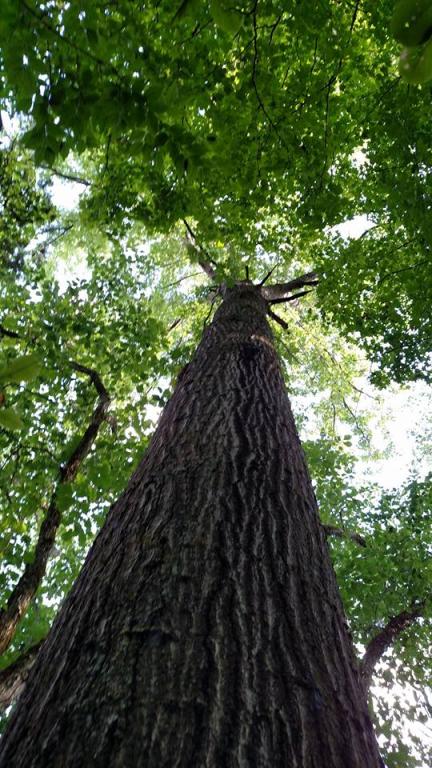
After the sermon, one gentleman thanked me for the sermon because of a situation that had recently arisen with his family. “My parents had a farm, but they have both died. Neither I nor my siblings want to farm the land, but we don’t want to sell it either. My faith is important to me, and caring for the environment is a priority for me. I had never heard of Natural Lands Trust before your sermon. I’m going to talk to my siblings about this. We could preserve my parents’ legacy, protect the Earth, and share the beauty of our land with the public.”
So that’s one example of a sermon making a difference for a person’s life, for a family’s decision, and for the community of Creation (inclusive of humanity). I framed the issue of land-preservation using biblical and theological tenets, proclaimed that God is at work through our actions to protect the land, and encouraged the listeners to do God’s work in the garden of Earth. It was a sermon to ‘feed the right wolf.’
Wind: Black Lungs Matter – Protecting God’s Breath, Our Air
In the urban African American church I served in Yeadon, Pa., I preached a sermon about the necessity of protecting God’s ruah (the Hebrew word for air/breath/wind). I began by asking how many in the congregation either suffered from or knew someone with asthma. About three-quarters of the congregation raised their hands. Air pollution in urban areas is particularly devastating to the lungs in those communities – who just happen to belong to mostly brown and black bodies (and, yes, Black Lungs Matter). Drawing from Sallie McFague’s notion of Earth as God’s body, I explained that God’s breath is our breath, and we need to do all we can to make sure the air is as healthy as possible.
I then shared that I was part of a clergy group asking their congregants to sign petitions and send post cards to the EPA about the regulations they were considering on mercury emissions from coal plants. (This was in 2011, when we still had an EPA that cared about such things.) Almost everyone either signed the petition or filled out a post card about why healthy air is important to them. In this way, the sermon not only framed the issue of air pollution using a theological and biblical foundation, but provided congregants with concrete ways to take action on their own behalf. This is another example of how we can ‘feed the right wolf’ in environmental preaching.
Water: Protecting the Waters of Our Baptism
The last congregation I served was just south of fracking territory in Central Pennsylvania. I had witnessed first-hand the devastation wrought by the methane gas industry on water, land, air and communities. For the Sunday in January commemorating the Baptism of Jesus, I wanted to preach a sermon about the need to protect the very water in which we baptize. I wanted to name the realities of our drinking water being threatened by the practice of fracking waste water being spilled (or intentionally dumped) into streams, which flow into our river, the source of our drinking water.
But a member of my congregation worked for Halliburton, one of the primary fracking companies. He supported his family with that income, and I did not want to denigrate the source of his livelihood. So before I preached the sermon, I called him to let him know that I was going to preach about this topic. “My intention is not to attack you personally for the work that you do. But I feel called to preach about the need to protect the waters of our baptism,” I explained.
“Pastor,” he said, “you have your job to do. I have mine. And let me tell you about my job.” And for the next hour he shared with me what he did in the field as an explosions specialist. He was part of the team that sent the explosives down into the ground to detonate them, fracturing the earth and releasing the gas. He shared with me the dangers and risks of his job, as well as his pride in working for a company that he believed “got it right.”
In the sermon, I acknowledged that some in our community benefit from fracking. But God wants for us to have meaningful work that does not result in harm to the very water we need to live.
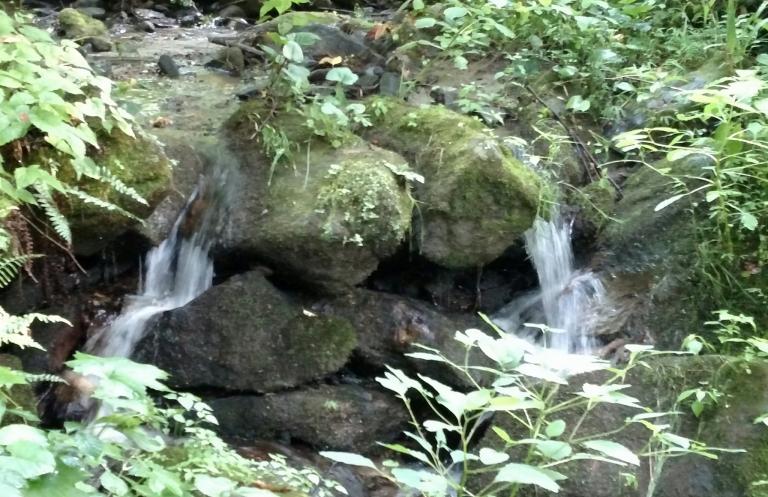
That Sunday my parishioner came to church, he listened to the sermon, and his children participated in our water-blessing at the font as the congregation sang “Wade in the Water.” (Incidentally, he no longer works in the fracking industry.) Balancing both the prophetic and the pastoral demands of our roles as clergy is yet another way we can ‘feed the right wolf.’
Will ecopreaching make any difference?
Will sermons that address the need to care for God’s Creation make any real difference in the hearts, minds and actions of our parishioners? Does the gospel have any bearing on the Creation-crisis we have created for ourselves? I believe it does. And I believe Christian proclamation can ‘feed the right wolf.’
Preachers have an important role to play during this time of crisis. As Margaret J. Wheatley’s conveys in her book, Who Do We Choose to Be?: Facing Reality, Claiming Leadership, Restoring Sanity, now is the time for leaders to create what she calls “islands of sanity” in the midst of this insane world. You can do that in your church, with your preaching, and with your pastoral presence. Be encouraged in your call. Feed the right wolf!
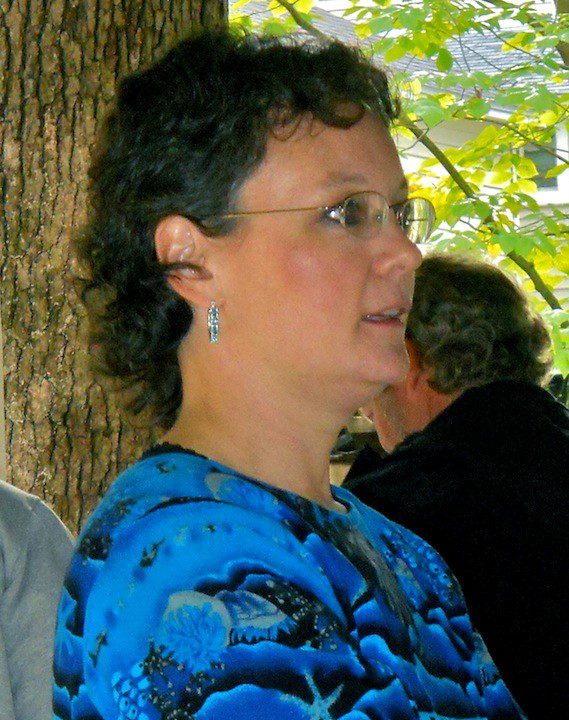 Leah D. Schade is the Assistant Professor of Preaching and Worship at Lexington Theological Seminary (Kentucky) and author of the book Creation-Crisis Preaching: Ecology, Theology, and the Pulpit (Chalice Press, 2015).
Leah D. Schade is the Assistant Professor of Preaching and Worship at Lexington Theological Seminary (Kentucky) and author of the book Creation-Crisis Preaching: Ecology, Theology, and the Pulpit (Chalice Press, 2015).
You can follow Leah on Twitter at @LeahSchade, and on Facebook at https://www.facebook.com/LeahDSchade/.
For more examples of sermons that ‘feed the right wolf,’ check out these links:
Noah’s Ark and Climate Change: What Kind of Church Will We Be?
What to Do When You’re Attacked on All Sides: A Message for the Clay Jars
Wolf photo credits:
Single wolf, public domain: https://www.flickr.com/photos/layout_nu/.
Wolves: Carten Tolkmit, some rights reserved, https://www.flickr.com/photos/laenulfean/









